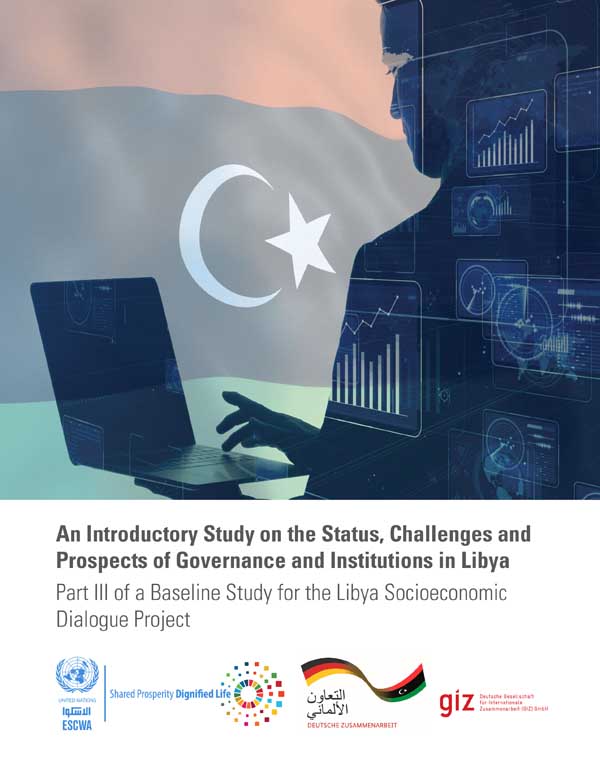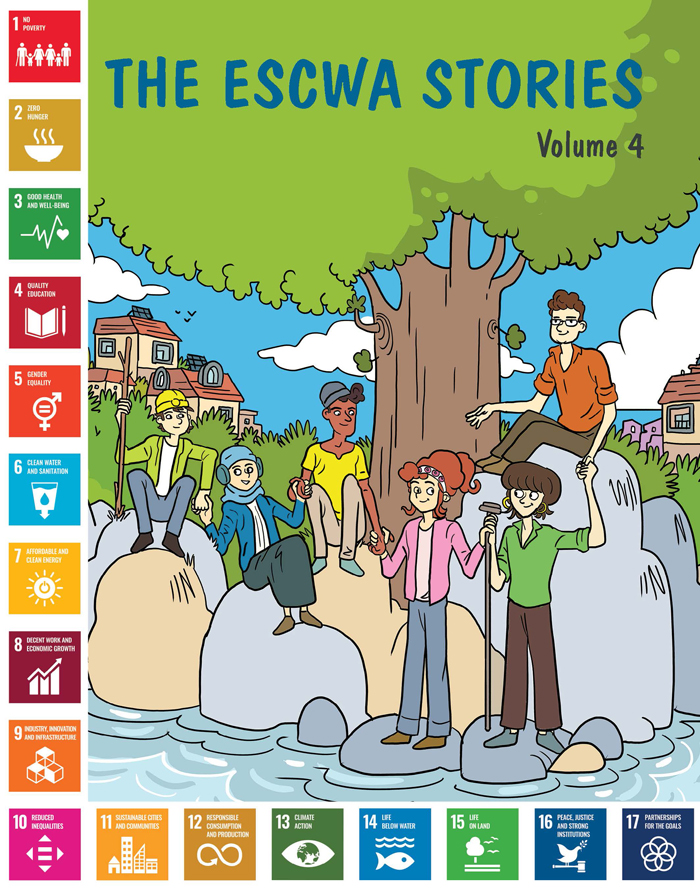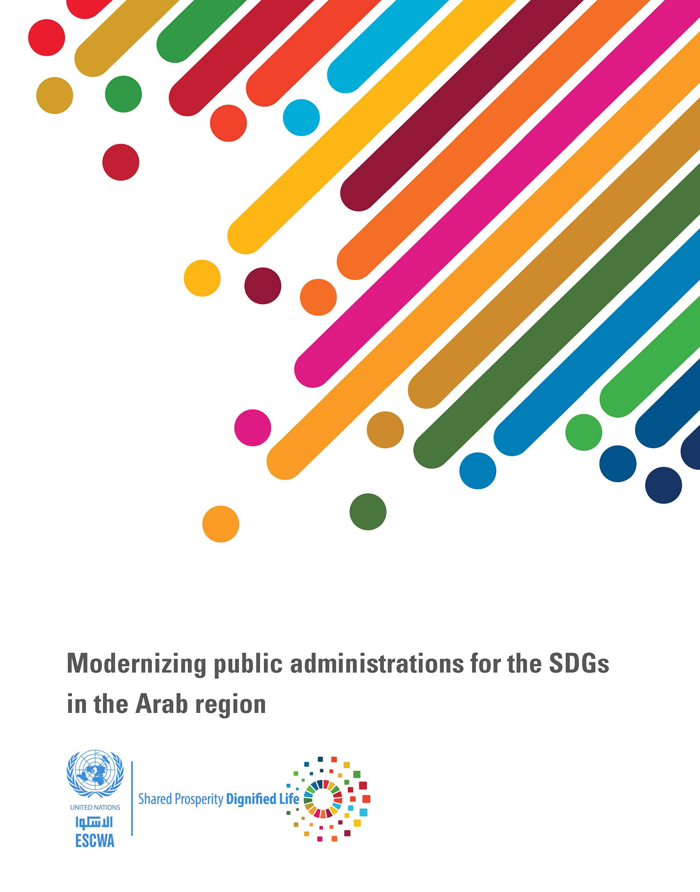
ESCWA Publication: E/ESCWA/CL6.GCP/2020/TP.1
Country: Arab region, State of Libya
Publication Type: Information material
Cluster: Governance and Conflict Prevention
Focus Area: Resilient development & conflict prevention
Initiatives: Libya Socioeconomic Dialogue, Governance and institution building
SDGs: Agenda 2030, Goal 16: Peace, Justice and Strong Institutions
Keywords: Conflict, Governance, Institution building
An introductory study on the status, challenges and prospects of governance and institutions in Libya
January 2020
The Libya Socioeconomic Dialogue Project is managed and implemented by the United Nations Economic and Social Commission for Western Asia (ESCWA), thanks to a funding by the German Federal Ministry of Economic Cooperation and Development (BMZ) through German Agency for International Cooperation (GIZ). The goal of the project is to provide and support a platform for Libyans to formulate, discuss, evaluate and advocate for a socioeconomic Future Vision to achieve stabilization and development in Libya. The platform will base its discussions on evidence-based research produced by the project in its initial, normative phase. The first step in the project is to conduct three baseline studies on the state of the Libyan economy, society and public governance. The research will leverage ESCWA’s in-house expertise as well as wide range of Libyan experts, and regional partners and collaborators.
The studies are broad and comprehensive, provide insight into the workings of the Libyan economy, society and governance system, identify key challenges and opportunities, and ask astute questions that aim to precipitate intellectual debate on institution building and alternative socioeconomic frameworks for sustainable development in Libya. These studies will use the 2030 Agenda for Sustainable Development as a benchmark and it identify potential priority themes that served as entry points or catalyst for broader transformative change and assist Libya’s progress in achieving the SDGs. Each study enriched through consultations, and Expert Meetings Groups, held for each of the three pillars.
Related content
Resilient development & conflict prevention
,
The Libya Socioeconomic Dialogue Project is managed and implemented by the United Nations Economic and Social Commission for Western Asia (ESCWA), thanks to a funding by the German Federal Ministry of Economic Cooperation and Development (BMZ) through German Agency for International Cooperation (GIZ). The goal of the project is to provide and support a platform for Libyans to formulate, discuss, evaluate and advocate for a socioeconomic Future Vision to achieve stabilization and development in Libya. The platform will base its discussions on evidence-based research produced by the project in its initial, normative phase. The first step in the project is to conduct three baseline studies on the state of the Libyan economy, society and public governance. The research will leverage ESCWA’s in-house expertise as well as wide range of Libyan experts, and regional partners and collaborators.
The studies are broad and comprehensive, provide insight into the workings of the Libyan economy, society and governance system, identify key challenges and opportunities, and ask astute questions that aim to precipitate intellectual debate on institution building and alternative socioeconomic frameworks for sustainable development in Libya. These studies will use the 2030 Agenda for Sustainable Development as a benchmark and it identify potential priority themes that served as entry points or catalyst for broader transformative change and assist Libya’s progress in achieving the SDGs. Each study enriched through consultations, and Expert Meetings Groups, held for each of the three pillars.



